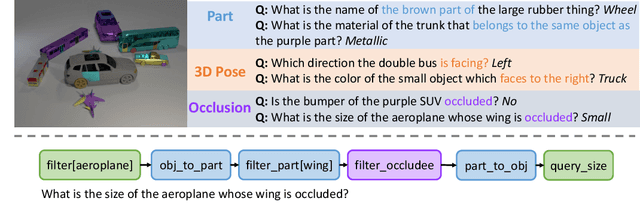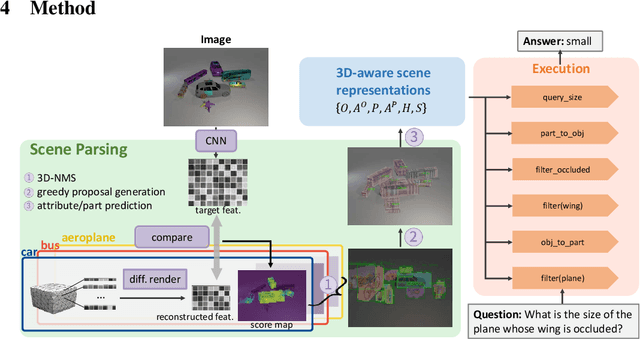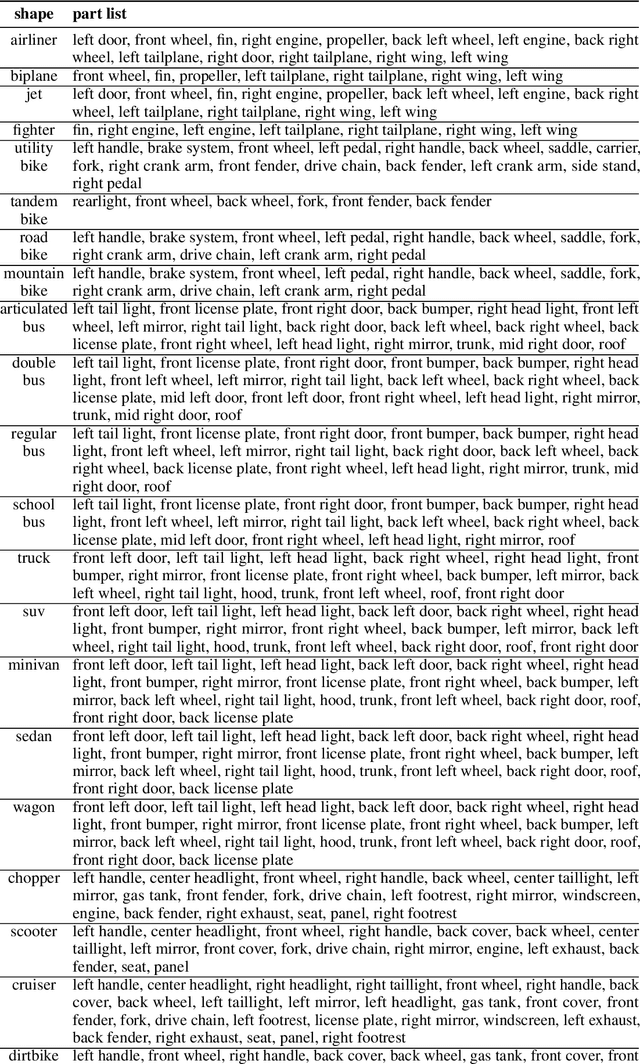3D-Aware Visual Question Answering about Parts, Poses and Occlusions
Paper and Code
Oct 27, 2023



Despite rapid progress in Visual question answering (VQA), existing datasets and models mainly focus on testing reasoning in 2D. However, it is important that VQA models also understand the 3D structure of visual scenes, for example to support tasks like navigation or manipulation. This includes an understanding of the 3D object pose, their parts and occlusions. In this work, we introduce the task of 3D-aware VQA, which focuses on challenging questions that require a compositional reasoning over the 3D structure of visual scenes. We address 3D-aware VQA from both the dataset and the model perspective. First, we introduce Super-CLEVR-3D, a compositional reasoning dataset that contains questions about object parts, their 3D poses, and occlusions. Second, we propose PO3D-VQA, a 3D-aware VQA model that marries two powerful ideas: probabilistic neural symbolic program execution for reasoning and deep neural networks with 3D generative representations of objects for robust visual recognition. Our experimental results show our model PO3D-VQA outperforms existing methods significantly, but we still observe a significant performance gap compared to 2D VQA benchmarks, indicating that 3D-aware VQA remains an important open research area.
 Add to Chrome
Add to Chrome Add to Firefox
Add to Firefox Add to Edge
Add to Edge